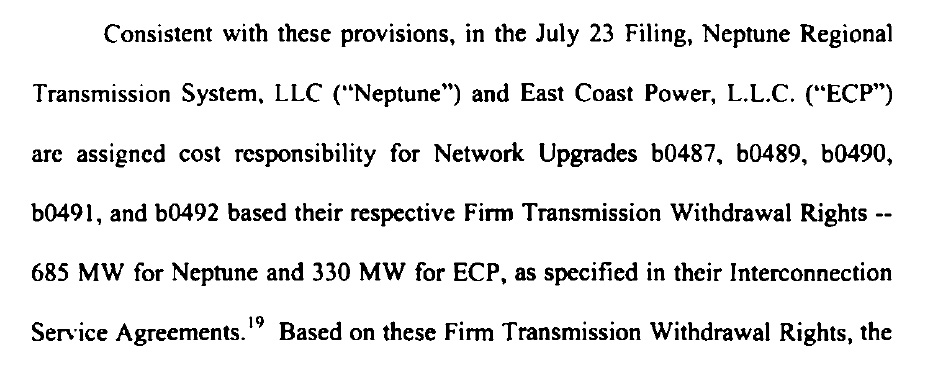Confirmed: Bulk power transfer to New York
July 1st, 2011
DUH! We all know what the point of the Susquehanna-Roseland transmission is, PSEG! Back during the Susquehanna Roseland hearing, I introduced a FERC filing reflecting the 660MW transfer across the river to New York, that was what, a year and a half ago now?
So how is this Firm Transmission Withdrawal Rights for 685MW and 330 MW is news? The NJ BPU was NOT in the dark about this…
Now where’s that other 670MW… Exhibit 96… it’s in here somewhere… here’s a post from November, 2009:
How far down does electrical demand have to go…
Here’s yesterday’s piece from the New Jersey Spotlight:
Federal Agency OK’s Power Transfer from New Jersey to New York

Leave a Reply